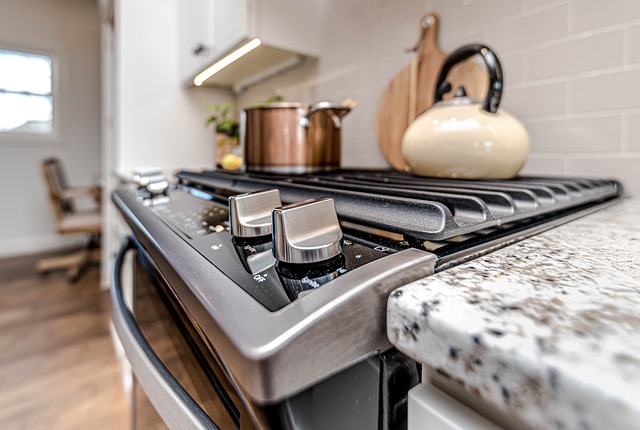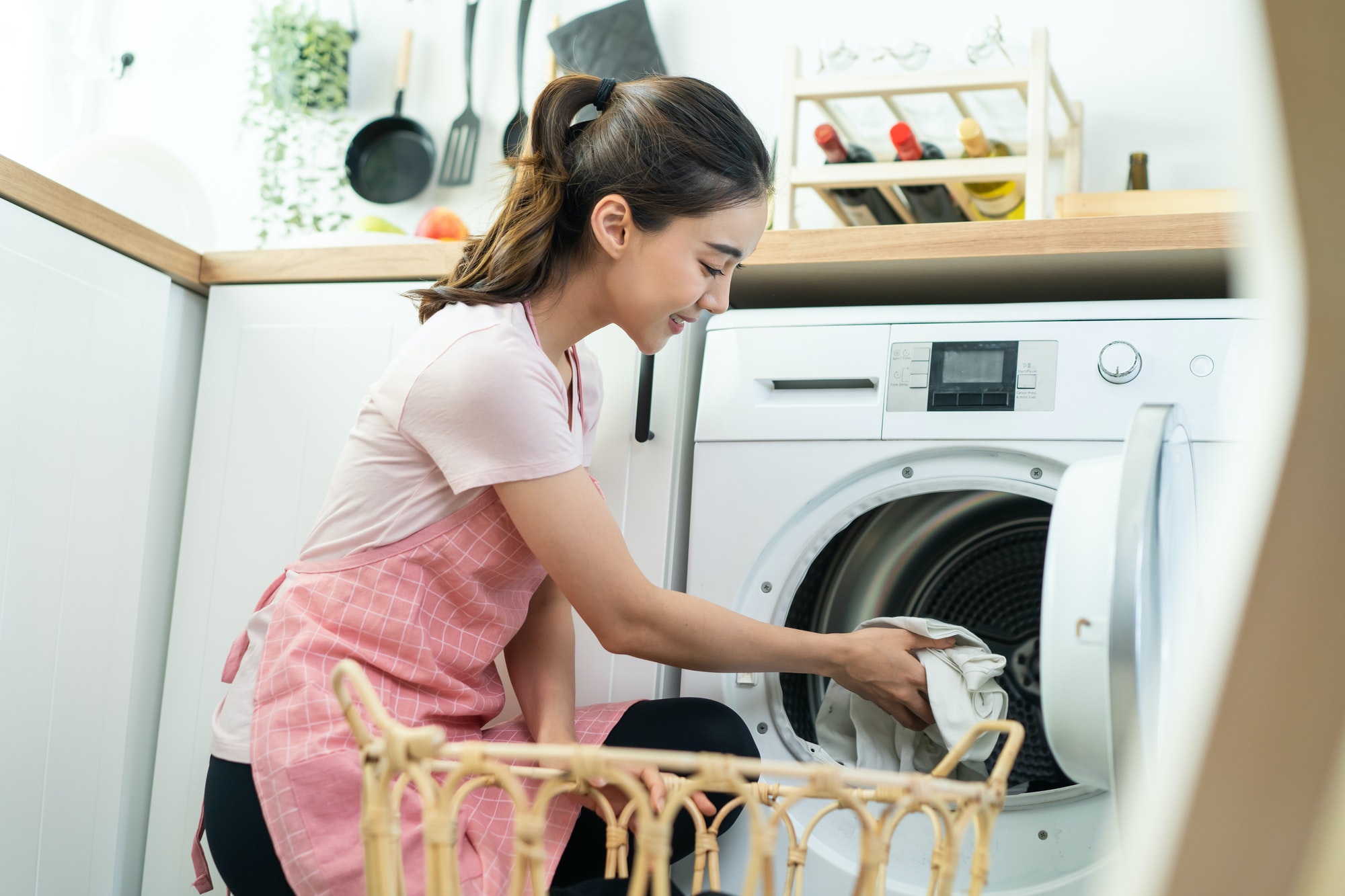Home appliances are essential components of our daily lives, simplifying tasks and saving us valuable time. Whether it’s the washing machine cleaning our clothes, the refrigerator keeping food fresh, or the air conditioner regulating temperature, these appliances work tirelessly, often without much thought from us. However, appliances can also break down, and often, their breakdown starts with something subtle — like a strange noise.
While it’s easy to dismiss a clanging sound or an odd hum as insignificant, ignoring these sounds can lead to significant, expensive repairs later on. These noises are often the first sign that something is wrong, and catching the problem early could save you from a hefty repair bill or even the cost of replacing the entire appliance. This article dives deep into why those weird noises are not something to ignore, explaining how they can escalate into more severe problems, what might be causing them, and what you can do to prevent them from leading to costly repairs.

The Role of Home Appliances in Modern Living
Before we discuss the potential hazards of ignoring appliance noises, let’s briefly talk about the essential role these machines play in everyday life.
Home appliances are designed to make life easier by automating tasks that would otherwise require manual labor. Refrigerators maintain a consistent temperature to keep food fresh, dishwashers sanitize utensils and crockery, and washing machines and dryers clean and dry clothes efficiently. Some appliances, like heating and air conditioning systems, provide comfort by controlling indoor climate conditions.
When functioning correctly, appliances save time, energy, and money by optimizing processes and allowing homeowners to focus on other things. But, like any mechanical system, appliances are prone to wear and tear. Even the best models, when used heavily, can develop issues over time.
Why Noises Are Warning Signs
Unusual sounds in home appliances are often early indicators of a problem. Each noise carries a different meaning, and understanding these sounds could help you pinpoint issues before they worsen. But why do these noises develop?
Most appliances contain moving parts, electrical circuits, or motors. Over time, as parts wear down or become misaligned, the machine may not operate as smoothly as it once did. A small, manageable issue like a loose bolt or belt may cause the appliance to work harder to perform its function, generating excess noise. If left unchecked, this small issue can cause more significant damage by affecting other components, eventually leading to the need for expensive repairs or even replacement.
Here are some reasons why it’s important to pay attention to strange appliance noises:
- Prevention of Further Damage: Unusual sounds, such as grinding, knocking, or humming, often signal that a part of the appliance is under stress. Ignoring this stress can result in the part failing completely, and the longer you wait, the more damage it can cause to other parts. For example, if a dryer belt starts to wear out, a squealing noise may develop. If left unattended, the belt could break, leading to additional strain on the motor and eventually causing the motor to fail.
- Improving Efficiency and Reducing Energy Costs: When an appliance is struggling to function due to a faulty part, it can become less efficient. The machine has to work harder, which increases energy consumption. This not only impacts your utility bills but also puts additional wear and tear on the appliance, reducing its overall lifespan. For instance, if a refrigerator’s compressor starts making a strange buzzing sound, it could mean the compressor is failing. As the compressor becomes less efficient, the refrigerator will need to run longer to maintain its internal temperature, using more electricity in the process.
- Safety Concerns: Some noises can indicate serious issues that could pose a safety risk. For example, a loud banging noise from a washing machine could indicate an unbalanced drum or loose internal parts. If the drum continues to spin out of balance, it could eventually break loose and cause physical damage to the machine or your home. Similarly, an air conditioner making a loud buzzing sound may indicate an electrical problem, which could pose a fire hazard if not addressed.
- Cost Savings: Addressing an issue early can save money in the long run. Small, simple repairs are often much cheaper than waiting for a catastrophic failure. For example, fixing a loose fan blade in an air conditioner may cost only a small amount, but if ignored, it could damage the motor, which is significantly more expensive to replace.
Common Appliance Noises and Their Potential Causes
Let’s explore the common noises that might come from different home appliances and what they could indicate.
Washing Machine
- Banging or Thumping: If you hear a loud thumping or banging during the spin cycle, it could mean that the load is unbalanced. Washing machines are designed to spin at high speeds, and if the load is uneven, the drum may knock against the sides of the machine. This problem can often be solved by redistributing the laundry load.
- Squeaking or Squealing: A high-pitched squeak usually indicates that the drive belt is worn or loose. If the belt is not replaced, it could snap, causing the washing machine to stop functioning entirely.
- Grinding or Clicking: A grinding noise may suggest that something is stuck in the drum, such as a coin or piece of clothing. If not removed, the object could damage the drum or motor, leading to more extensive repairs.
Dryer
- Squealing or Screeching: This often indicates a worn drum bearing or support rollers. When these parts wear out, the drum may rub against other components, creating the noise. Over time, the wear can cause other components to fail as well, leading to more expensive repairs.
- Rattling or Thumping: A rattling noise could indicate that something is loose in the dryer, such as a coin or other small object. A thumping sound may suggest a problem with the drum rollers or the blower wheel. These issues can worsen over time, leading to costly part replacements.
Refrigerator
- Buzzing or Humming: A refrigerator that buzzes or hums could have a problem with the compressor or condenser fan. These components are essential for keeping the refrigerator cool, and if they fail, the fridge may stop working entirely, resulting in spoiled food and costly repairs.
- Knocking or Tapping: A knocking noise can indicate that the condenser coils are dirty or that the refrigerant is low. Cleaning the coils or having a technician recharge the refrigerant can often resolve the issue. Ignoring this noise could lead to a compressor failure, which is one of the most expensive repairs in a refrigerator.
Dishwasher
- Grinding or Humming: A dishwasher that makes a grinding or humming noise during operation may have a problem with the motor or pump. If the motor is struggling to turn or the pump is clogged, the machine may not be able to clean dishes effectively, leading to a potential breakdown if not addressed.
- Rattling: A rattling noise could indicate that a piece of glass or other object is stuck in the dishwasher’s spray arm. Left untreated, this can cause damage to the spray arm or motor, which could result in more extensive repairs.
Air Conditioner
- Buzzing or Clicking: A buzzing noise from the air conditioner could indicate an electrical problem, such as a failing capacitor or loose wiring. This issue should be addressed immediately, as it could pose a fire risk.
- Hissing: A hissing noise may suggest a refrigerant leak. Refrigerant is essential for cooling the air, and if the level gets too low, the air conditioner will not work properly. Additionally, refrigerant leaks can be harmful to the environment and may require a professional to fix.
Consequences of Ignoring These Noises
Higher Repair Costs
When small problems are ignored, they can turn into major issues that require more extensive repairs. For example, a small leak in a washing machine hose might seem insignificant, but if left unattended, it could lead to flooding, water damage to your home, and the need for a major repair or replacement of the machine. Similarly, a failing compressor in a refrigerator is one of the most expensive repairs, often costing several hundred dollars, compared to fixing a minor buzzing noise caused by dirty condenser coils, which can cost as little as $50.
Decreased Lifespan of Appliances
Ignoring appliance noises can lead to reduced lifespan. The longer an appliance is forced to work with faulty components, the more strain is put on the machine as a whole. A refrigerator that has a noisy compressor may still function for a while, but the added stress on the motor could cause it to fail sooner than expected, meaning you may have to replace the appliance much earlier than anticipated.
Increased Energy Consumption
Faulty appliances often consume more energy as they struggle to perform their tasks. For example, if your dishwasher’s pump is malfunctioning, it may run longer than usual to try to clean the dishes, using more water and electricity. Similarly, a refrigerator with a failing compressor will have to work harder to maintain the right temperature, increasing your energy bills.
Health and Safety Risks
Ignoring appliance noises can also pose risks to your health and safety. For example, a refrigerator with a refrigerant leak may expose your household to harmful chemicals. Additionally, electrical problems in appliances like air conditioners or dishwashers can lead to fires, which could have devastating consequences.
What You Can Do to Prevent Expensive Repairs
Pay Attention to Changes in Sound
If you hear a new or unusual sound coming from your appliance, don’t ignore it. Take the time to investigate the source of the noise and determine whether it’s something you can fix yourself, such as redistributing the laundry in a washing machine, or if you need to call in a professional.
Schedule Regular Maintenance
Regular maintenance is one of the best ways to prevent unexpected breakdowns and costly repairs. Many appliance manufacturers recommend scheduling annual or biannual checkups for appliances like air conditioners, refrigerators, and washing machines. These checkups allow a professional to inspect the appliance, clean any dirty components, and replace worn parts before they fail.
Follow Manufacturer Guidelines
Each appliance comes with a set of manufacturer guidelines for proper use and maintenance. By following these guidelines, you can help ensure that your appliance runs smoothly and efficiently. For example, refrigerators often need their condenser coils cleaned once or twice a year to prevent overheating, while dishwashers may need to be descaled periodically to remove mineral buildup.
Fix Small Issues Promptly
Small issues, like a loose belt or a clogged filter, may seem minor, but they can lead to bigger problems if not addressed quickly. Fixing these issues promptly can save you from more extensive repairs down the road.
Hire a Professional for Repairs
While some minor appliance issues can be fixed with DIY solutions, it’s often best to hire a professional for more significant repairs. A trained technician has the experience and tools to diagnose and fix the problem correctly, ensuring that the appliance functions properly and safely.
Conclusion
In the hustle and bustle of daily life, it’s easy to ignore that weird noise coming from your washing machine, dryer, or refrigerator. However, those sounds are often early warning signs that something is wrong. Ignoring these noises can lead to more severe damage, decreased energy efficiency, higher repair costs, and even safety hazards. By paying attention to changes in sound, scheduling regular maintenance, and fixing small issues promptly, you can extend the lifespan of your appliances, save money on repairs, and keep your household running smoothly.
Zuta Appliance Repair: Expert Home Appliance Repair Services for Your Berkeley Kitchen
In the heart of Berkeley, California, Zuta Appliance Repair is your trusted partner for maintaining the functionality and convenience of your home appliances. When one of your essential appliances, like your refrigerator, oven, or dishwasher, malfunctions, it can significantly disrupt your kitchen’s efficiency. That’s why we are committed to providing top-tier repair services for a wide range of home appliances. Whether it’s a broken icemaker or a faulty stove, our expertise ensures your appliances are back to working efficiently, minimizing inconvenience and keeping your kitchen running smoothly. With Zuta Appliance Repair, you’re not just getting a repair—you’re receiving a promise of quality, integrity, and reliability that enhances your kitchen’s performance and peace of mind.
Experience comprehensive solutions to all your home appliance issues with Zuta Appliance Repair. Our specialized services are designed to extend the life of your appliances and restore your kitchen’s full functionality. Our skilled team, equipped with unmatched expertise and a friendly approach, offers cost-effective solutions that deliver long-lasting results. This is more than just a repair service—it’s about restoring comfort and convenience to your home. Choose Zuta Appliance Repair for an improved lifestyle. Contact us now at (415) 592-4633 and let us get your appliances back to being reliable, efficient parts of your daily life, ensuring peace of mind and uninterrupted kitchen convenience.
Disclaimer
The materials available on this website are for informational and entertainment purposes only and not to provide legal or professional advice. You should contact your attorney or home improvement specialist to obtain advice concerning any particular issue or problem. You should not act or refrain from acting based on any content included in this site without seeking legal or other professional advice. The information presented on this website may not reflect the most current home improvement developments. No action should be taken in reliance on the information on this website. We disclaim all liability concerning actions taken or not taken based on any or all of the contents of this site to the fullest extent permitted by law.







